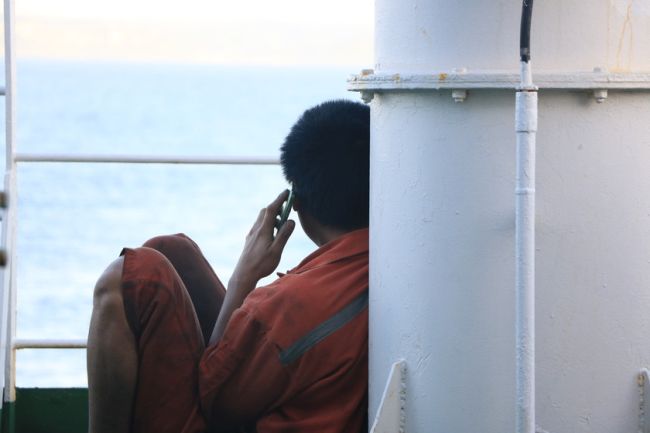
‘A fair future for seafarers?’ was not a thought-provoking concern until the world faced the pandemic. The shipping industry never falls short and has already put on their thinking caps to come up with better solutions for the ever-changing conditions.Inmarsat has voiced its concerns about crew welfare by publishing a report exploring the future of seafaring, also ensuring to sponsor it. Thetius report allocates digital crew welfare services to provide better shipping conditions for global seafarers. The report provides recommendations and asserts on how training and well-being services can adapt to the developing demands of tomorrow’s seafarers.
According to reports, the connectivity from the seafarers to the teams onshore is likely to be a necessity by 2050. This provides them with greater interaction and engagement. Welfare services are focusing on becoming digitally advanced, rather than it being a physical or face-to-face contact. A decrease in crew numbers and shore leaves for a shorter span will mean less dependency on seafarer centres, pushing the outreach services to gain more importance.
“Drawing on recent experience, fast-changing digital landscapes and testimony from industry authorities, this report offers a clear vision of the critical role connectivity and technology will play in crew welfare in the coming years,” says Ronald Spithout (President, Inmarsat Maritime).
Prioritising crew welfare
Seafarers all around the globe are given priority for vaccination. Ports are doing joint ventures to vaccinate seafarers, who are part of “essential workers”. The global crisis might have pricked the nerves of the whole world, but seafarers have proved that they are born amidst heavy storms. The global condition in terms of shipping is turning a positive end, with the glimpse of the sun after such dark hours nearing. The world has learned the role a seafarer plays and is thus developing technologies to strengthen their welfare offshore.
Thinking of the maritime industry in 2050, assumptions are made regarding the normalization and commonness of epidemics and pandemics. However, having initial precautions can help the industry fight crew safety, fatigue, and harassment issues. These issues also need to be addressed as the industry does for seafarer abandonment and criminalization problems.
“The 2020-21 pandemic may be seen as a tipping point for telemedicine,” added Spithout.
Digitisation of the maritime industry
Inmarsat believes in the early adoption of technologies that Thetius report declares critical for crew welfare. The report suggests how manual logging of rest hours can be exchanged with fatigue monitoring systems and give solutions to manage it. To be in line with the 2020 Crew Welfare Open Innovation Challenge, Inmarsat and Shell are trying out Work rest software capabilities to allow intelligent fatigue management.
In 2050, the demand for technologies like artificial intelligence (AI), 3D printing, and extended reality (XR) will be high to enable better levels of advanced training. Therefore, seafarers born in the digital era would be the benefiters from such technologies.
“We are fully aware of the sacrifices our seafarers continue to make to keep the world economy running,” said Spithout. “This new report includes important proposals for the creation of a global seafarer advocacy organisation and an urgent strategic review of local seafarer services. We are doing so by enhancing connectivity and the digital services that support safety, continuous professional development and crew welfare, as well as continuously working in collaboration with charities, ship owners and managers to provide enhanced welfare services. “
“This updated service will include exciting new features for crews, including the ability to create their own ‘Fleet Hotspot’ account and use credit across multiple devices,” stated Spithout, highlighting it.
It is anticipated that the launch of this report will be in parallel with the launch of a renewed version of the Fleet Xpress portal by Inmarsat, in the final quarter of 2021. With this, the crew members will be able to independently access Fleet Hotspot along with the vessel’s service bandwidth.